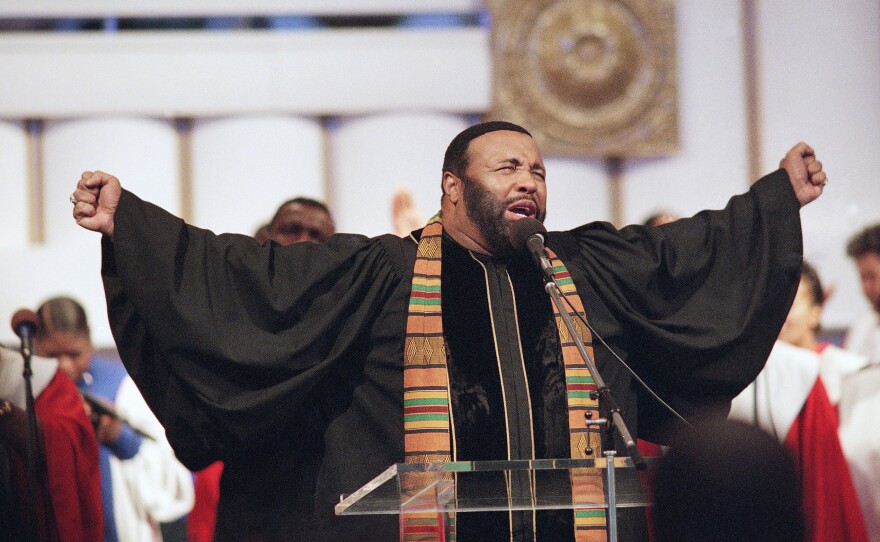Legendary gospel singer, composer and producer Andrae Crouch died Thursday at the age of 72, his publicists announced Thursday night. He had hospitalized in the Los Angeles area since Jan. 3.
The seven-time Grammy winner was inducted into the Gospel Music Hall of Fame in 1998. His songs were recorded by Elvis Presley and Paul Simon, he collaborated with Stevie Wonder, Chaka Khan, Elton John, Quincy Jones and Diana Ross, and he was a backup singer on several Michael Jackson songs.
He also received an Academy Award nomination for his composition work on The Color Purple, and led the choir on Madonna's "Like A Prayer," The Associated Press notes.
In a 2011 interview with NPR's Michel Martin, he talked about the power of great gospel songs to transcend the divide between religious and secular music.
"I think that some people still think that the formula other than gospel still is not strong enough to get that crossover appeal to people enough that they would play it all the time or non-church people would accept it, but I disagree. I think that if something's really good and it touches that part of their heart that has been untouched or maybe it has been touched, but they never wanted to admit it, I think that when they get back to that, I think that we are still in a place that people enjoy it the way it's supposed to be enjoyed. "And I think that when we like songs in gospel and it hits that part of the soul or the mind that brings back familiarity to the person or to the listeners, I think we zero in on something that will always be needed."
Copyright 2015 NPR. To see more, visit http://www.npr.org/.






